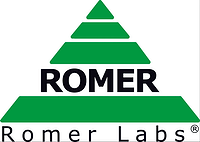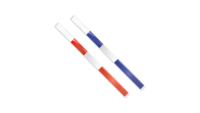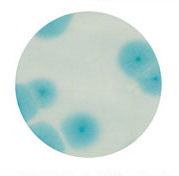Hygiena Releases GlutenTox ELISA Rapid G12: A More Sensitive, Faster Gluten Test

Hygiena has announced the release of GlutenTox ELISA Rapid G12, an improved test for the most immunotoxic peptide in gluten. The test provides more accurate results in less time than either previous versions or competitors’ ELISA tests for gluten.
GlutenTox ELISA Rapid G12 uses the G12 antibody to identify in food samples the 33-mer (part) peptide segment of the gliadin protein, which is part of the gluten protein complex. This “33-mer” peptide is the most immunotoxic part of the gluten protein and induces celiac disease in susceptible people. The 33-mer peptide also shows high resistance to complete digestion by human digestive enzymes. Focusing on this peptide fragment provides more objective information to help people with celiac disease and gluten intolerance to avoid foods that contain gluten.
GlutenTox ELISA Rapid G12 provides fast, convenient, and accurate measurement of gluten down to 0.6 ppm (0.3 ppm of gliadin).
GlutenTox ELISA Rapid G12 is based on the enzyme-linked immunoassay (ELISA) test, a proven laboratory workhorse for more than 40 years. This test first uses the G12 antibody that is fixed to a testing surface (the “capture” antibody). This antibody binds specifically to certain peptides (in this case, the 33-mer). A second antibody, the “detection antibody,” is then introduced, labeled with an enzyme so it and its accompanying target protein can be measured. The “capture” antibody determines what proteins the “detection” antibody can pinpoint.
In addition, standards provided with the kit will be ready-to-use for the first time. This innovation will reduce operator errors, as well as the time needed to prepare assays. The new kit is also more stable during temperature changes, and delivers positive results even in highly contaminated samples (a limitation of other gluten tests). Finally, GlutenTox ELISA Rapid G12 tests have shorter incubation times, allowing for an accurate-analytic measurement of gluten in 90 minutes.
“With additional benefits like faster time to results, less susceptibility to temperature and nontoxic reagents, we are confident this new test will mark a significant advance in the ability to detect gluten proteins that are so harmful to those sensitive to even low levels of gluten.,” said Charles McGuill, product manager at Hygiena.
Hygiena | Hygiena.com
Looking for a reprint of this article?
From high-res PDFs to custom plaques, order your copy today!





